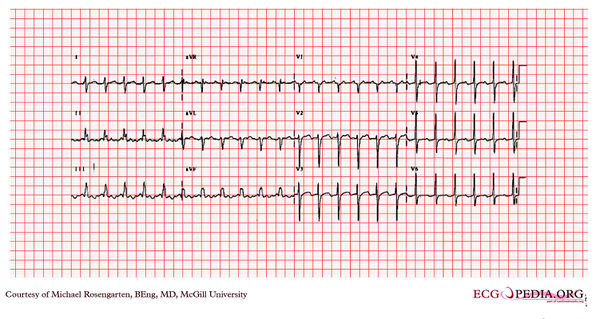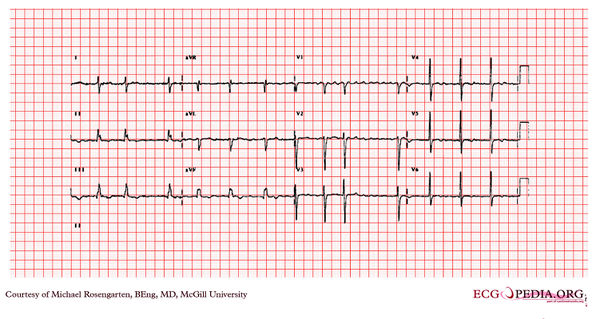McGill Case 66: Difference between revisions
Jump to navigation
Jump to search
No edit summary |
No edit summary |
||
| Line 6: | Line 6: | ||
}} | }} | ||
[[File:E0007661.jpg|thumb|600px|left| | [[File:E0007661.jpg|thumb|600px|left|This is an interesting set of tracings, as it shows the effect of adenosine on AV conduction, but in addition the effect on atrial refractoriness. | ||
The first tracing is clearly atrial flutter with an atrial rate of 270/min, and a ventricular rate of 135/min. The second recording shows much faster atrial activity (Note the distance between the turquoise arrows and the yellow arrows which mark out 3 atrial cycles). The second tracing is either atrial fibrillation (a know result of adenosine) or a faster atrial flutter (type II flutter) with variable block. Both of these effects could be seen as a result of the decrease in the atrial refractory period by the stimulation of the adenosine.]] | |||
[[File:E0007662.jpg|thumb|600px|left|]] | [[File:E0007662.jpg|thumb|600px|left|]] | ||
Latest revision as of 01:07, 15 February 2012

|

